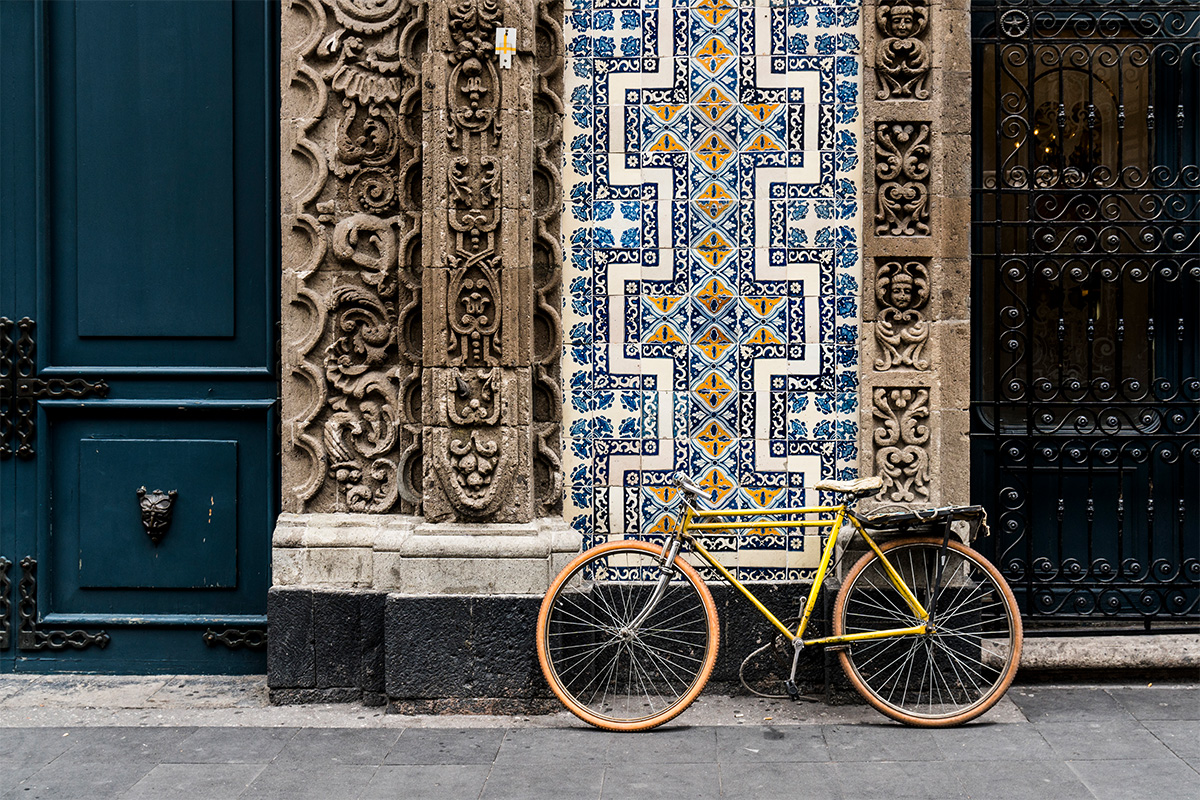I’m a Jew by choice in Mexico City. In the past few years, I’ve received lots of emails and Facebook messages from people I don’t know who want to convert to Judaism; they’ve seen an interview I did some time ago in which I talked about my conversion process. I try to kindly reply to all of them, even though the most convenient answer, again and again, is silence — because what can I do for them, really? Disappoint them by clarifying we aren’t any sort of chosen people in a VIP way, as many of them seem to think? Tell them to buy and read a Torah? To listen to Bukharian Jewish music, to read Elias Canetti, to watch a Coen brothers’ movie? To start doing kapparot? Judaism is so diverse, and I can’t know what it means to each of them.
I tell them that, though it may not be easy, I can now say, a decade after my beit din, that I’ve found the whole journey to my Jewish identity worth it. I hope sharing this piece will allow me to connect with others who may have had similar experiences — nearby or anywhere else.
You may ask: Why are all these co-nationals reaching out to me, instead of a rabbi? Well, Mexican rabbis are not that easy to reach. In fact, I’ve been living my entire Jewish life quite apart from them, and from the rest of the community.
Why is that? To begin with, I live in Centro Histórico, where Mexican Jews first lived around the turn of the 20th century, at the beginning of their modern history on Mexican soil. Unfortunately, almost none of their descendants remain here. In the second half of the 20th century, the vast majority moved to the western suburbs of the city — and it’s a huge city. So, without a car, it’s pretty difficult to access synagogues, or kosher stores, or community life in general. Also, I don’t have many Jewish friends in town. On top of that, I’m not a married man. Unlike many Jewish converts in Mexico who “become” Jewish as a prerequisite to marrying someone Jewish, I’m not planning to raise a family.
In other words, I’m a nefesh yehudi (Jewish soul) who has been dealing with Jewish identity in a non-Jewish environment. But I still feel deeply connected to Jewish values in my everyday life.
From the very beginning, in my Judaism classes at Beth Israel (an English-speaking masorti, or Conservative, community), I learned that Judaism is as much a social matter as a religious one. Even back then, I realized my Jewish life wouldn’t be simple.
And it hasn’t been.
In the past ten years I’ve been through a lot: judgment of my Jewishness because of my looks (“luckily, you do look like a Jew”) and last names (“I bet you’re from the Uribes of Turkey, right?”); continual refusal of my identity (“you’ll be buried in a Catholic cemetery, like it or not” and “happy Christmas!”); rejection from a Chabad community in Cozumel because, to them, I’m not a real Jew, meaning Orthodox; more frequent antisemitic comments than I expected, either because of our Jewish governor, politics in Israel, some Mexican businessman’s misbehavior or just… because (“I’m not talking about you, but other Jews”); etc.
On the one hand, Mexico is a very Catholic society; on the other hand, its Jewish community tends towards the Orthodox and the traditional, and isn’t very open to diversity. So, as a “different” Jew, my life doesn’t exactly feel like a “Seinfeld” episode.
Nevertheless, good things have happened, too — on both the social and the religious spectrum. In the end, Judaism has been a rewarding path for me. A path to where? To humility — to a desirable version of oneself.
Judaism provides a steady scaffold in this regard, with useful values: a balance between justice and goodness; the capacity to evolve and move forward no matter what; the possibility of calling everything into question (Torah interpretations, the very state of Israel, the prevailing morals of any society); fighting idolatry in a deep way (nationalism, for instance), as well as lashon hara (derogatory speech); embracing tikkun olam as an everyday responsibility; freedom and unity as lenses on the world; the enormous power of words, whether spoken or written; thanks (modeh ani) and blessings (brachot) on a daily basis; trust in God (Psalm 23); beautiful mitzvot like feeding your pets before eating oneself; weekly rest; separating what is valuable from what is not; spiritual and physical hygiene (netilat yadaim); always choosing life over death, and human life over any institution or ideal…
And a resilient sense of humor.
In conclusion, for me Judaism has been a lonely, but very exciting path — a brit milah of the heart, a perennial way to stand on the side of the oppressed and never the oppressor. Hopefully, I can be a shamash (helper) to other people and vice versa, especially if they’re not Jewish — if not, what’s the point of being “a light to the nations”?
It doesn’t matter if I can’t afford a costly membership to a synagogue to recite the kaddish, or if I don’t see myself living in the suburbs, or if I don’t feel welcomed in a Kabbalat Shabbat service that looks like a children’s party.
Also, it doesn’t matter if I have to fast on my own sometimes, or to mark Shabbat in a cantina with my atheist pals, or to light candles on Hanukkah as alone as Jacob was on the night when he became Israel, the wrestler.
I’m Jewish; I’m OK with wrestling.



